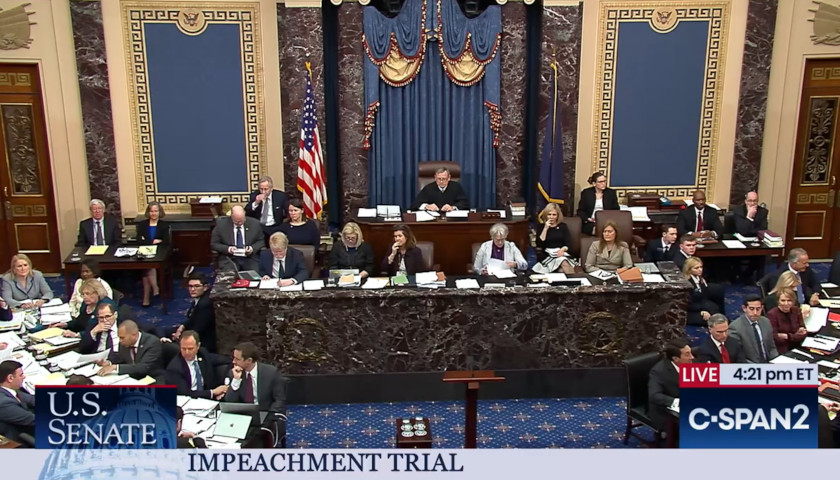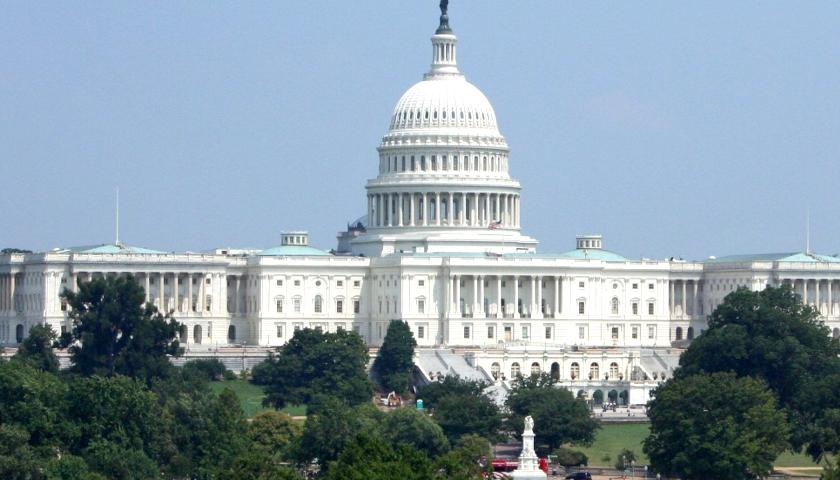By Ken Bredemeier, Kenneth Schwartz, Wayne Lee
The U.S. Senate on Thursday held a final day of questioning President Donald Trump’s defense team and the House lawmakers prosecuting his impeachment case, as a decision looms about allowing witnesses.
Trump attorney Alan Dershowitz argued on Wednesday that even if Trump did ask Ukrainian President Volodymyr Zelenskiy for a political favor in exchange for aid, it is not impeachable.
“Every public official that I know believes that his election is in the public interest … and if a president did something that he believes will help him get elected, in that public interest, that cannot be the kind of quid pro quo that results in impeachment,” he said.
The lead prosecutor, Democrat Adam Schiff of the House Intelligence Committee, maintained Dershowitz’s argument lacks merit.
“That is the normalization of lawlessness,” Schiff declared. “I would hope that every American would recognize that is wrong to seek foreign help in an American election, that Americans should decide American elections.”
Deputy Counsel to the president Patrick Philbin defended Trump, contending the presidency has broad executive authority.
“Rights can be defended,” he said. “Rights exist to be defended and asserting those rights cannot be treated either as something punishable or … as evidence of guilt.”
Question of witnesses
How quickly the proceedings come to a close will be determined by whether the Republican-majority will approve a request from Democrats to hear from key administration officials. The issue dominated Wednesday’s first session, during which senators submitted written questions.
Democrats are particularly eager to hear from John Bolton, the former national security adviser who wrote in a yet-to-be-published book that Trump told him he was withholding $391 million in military aid to Ukraine until Zelenskiy publicly announced a corruption investigation into Democratic presidential challenger Joe Biden and his son, Hunter.
Democrats insist Bolton and others must be called as witnesses. Most Republicans, who say Trump did nothing wrong in freezing the aid to Ukraine, do not want Bolton or anyone else to testify or any new evidence to be submitted to prosecutors.
According to testimony during the House of Representatives’ impeachment investigation, Bolton voiced concerns about Trump withholding the aid and asking several White House officials to investigate the Bidens, at one point calling the request a “drug deal” he wanted no part of.
Schiff appealed to the senators Wednesday to judge Bolton’s credibility for themselves.
“When you have a witness as plainly relevant as John Bolton who goes to the heart of the most serious and most egregious of the president’s misconduct, who has volunteered to come and testify, to turn him away … is deeply at odds with being an impartial juror.”
But deputy White House counsel Philbin accused the Democrat-controlled House on Wednesday of approving two articles of impeachment against Trump in a “hurried, half-baked, partisan fashion” and that to call witnesses now “could drag (the Senate trial) on for months.”
Opposition to book
A top National Security Council official wrote a letter to Bolton’s attorney last week stating the book cannot be published in its current form because it contains a significant amount of classified information, including some that is top secret. She said the NSC is still reviewing the manuscript.
Bolton’s lawyer released an email response to the NSC Wednesday, disputing the letter’s assessment.
The Republican-majority Senate plans to vote Friday whether to allow Bolton and other relevant witnesses to testify. Fifty-one votes are needed, which means at least four Republicans would have to join the 47 Democrats and independents. Republican Senate Majority Leader Mitch McConnell conceded Tuesday that he may not have the votes to prevent the subpoenas.
The Senate will decide whether to convict Trump on two articles of impeachment and remove him from office — abuse of power and obstructing Congress.
However the debate plays out over witnesses, Trump is almost certain to be acquitted.
A two-thirds vote in the 100-member Senate is needed to convict Trump and remove him from office. But with Republicans holding a 53-47 majority and no Republican calling for his ouster, Trump is all but assured of being exonerated.
– – –
Photo “Impeachment” by CSPAN.





